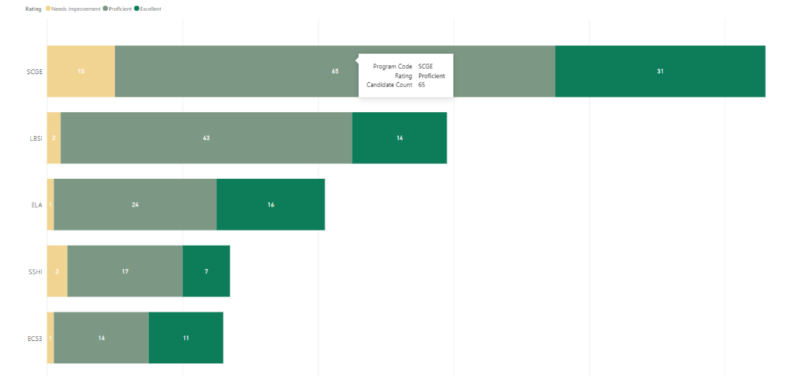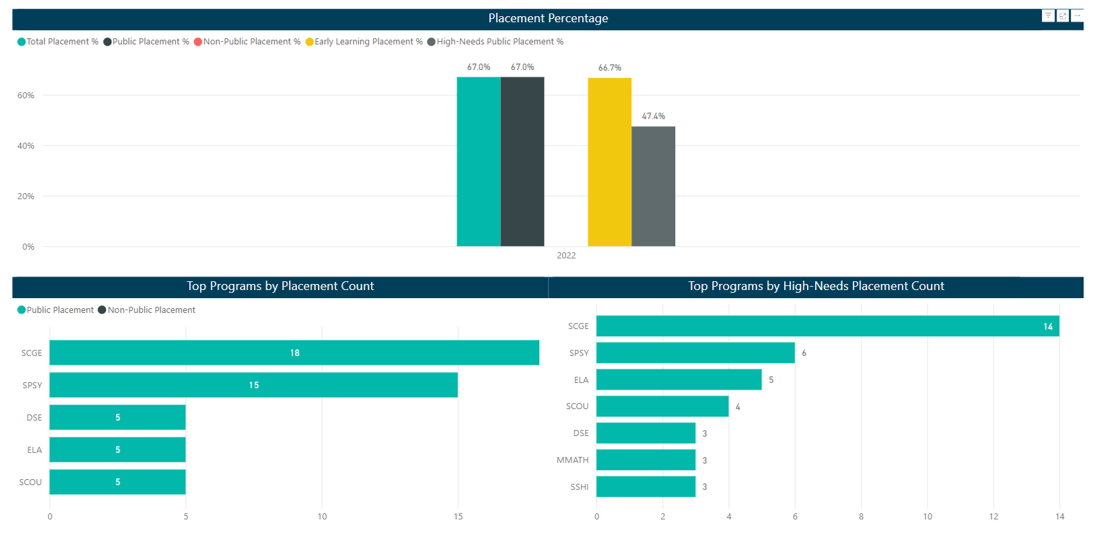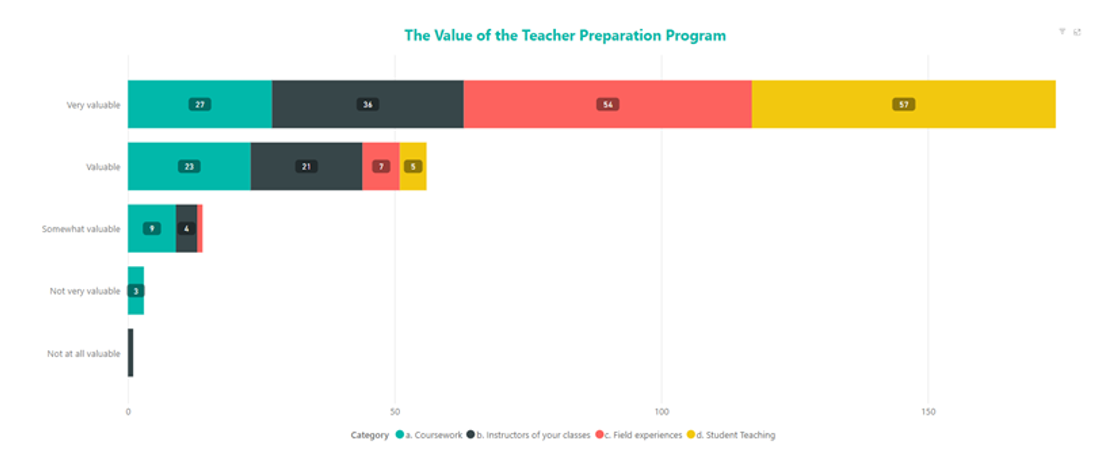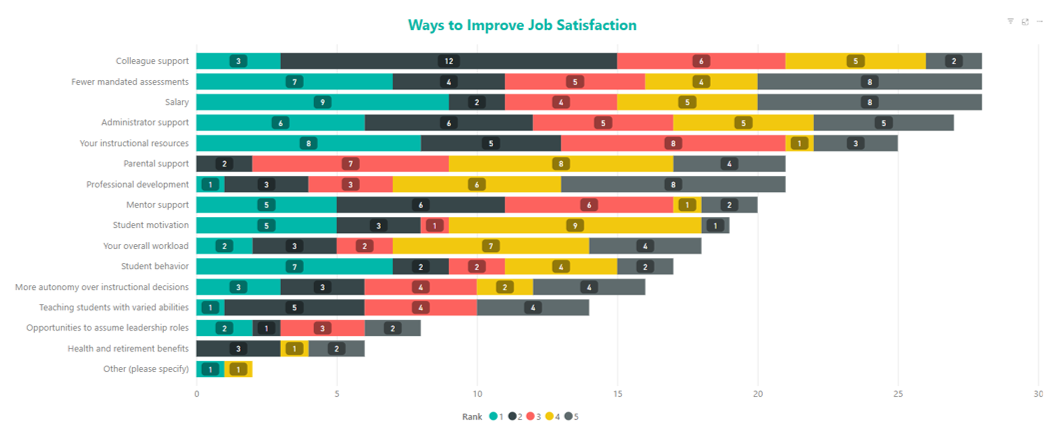Accreditation
Accreditation is important to the School of Education because it ensures that programs attained critical levels that meet or exceed standards developed by experts in the field. The School of Education as a whole is currently accredited by the Council for the Accreditation of Educator Preparation (CAEP).
| CAEP accredited programs |
|---|
| Early Childhood Special Education: BSEd |
| Elementary Education: BSEd, MEd |
| English Language, Teaching and Learning: Endorsement |
| School Psychology: EdS |
| Secondary Education - English: BSEd, MEd |
| Secondary Education - Foreign Language: BSEd, MEd |
| Secondary Education - Mathematics: BSEd, MEd |
| Secondary Education - Science: MEd |
| Secondary Education - Social Studies: BSEd, MEd |
| Special Education - BSEd, MEd |
Program Specific
Many individual degree programs selected to seek and obtain accreditation. The following are the degree programs currently accredited and their organization:
Counseling Psychology (PHD)
American Psychological Association (APA)
Early Childhood Special Education (BSED)
National Association for the Education of Young Children (NAEYC)
Elementary Education (BSED, MED)
Association for Childhood Education International (ACEI)
English Language Teacher and Learning (Endorsement)
Teachers of English to Speakers of Other Languages (TESOL)
School Psychology (EDS)
National Association of School Psychologists (NASP)
School Psychology (PHD)
American Psychological Association (APA)
Secondary Education – English (BSED, MED)
National Council of Teachers of English (NCTE)
Secondary Education – Foreign Language (BSED, MED)
American Council on the Teaching of Foreign Languages (ACTFL)
Secondary Education – Mathematics (BSED, MED)
National Council of Teachers of Mathematics (NCTM)
Secondary Education – Science (MED)
National Science Teachers Association (NSTA)
Secondary Education – Social Studies (BSED, MED)
National Council for the Social Studies (NCSS)
Special Education (BSED, MED)
Council for Exceptional Children (CEC)
CAEP Annual Reporting Measures
CAEP Annual Report Measures (2024)
Loyola University Chicago Data Partnership with Illinois State Board of Education
The School of Education (SOE) participates in an annual data partnership with the Illinois State Board of Education (ISBE), the Partnerships for Educator Preparation (PEP). In this partnership, the SOE provides detailed candidate level information in exchange for aggregate reports detailing different aspects of candidate profile and professional activity once they have entered the field. Then the ISBE Annual Program Report is targeting to provide information in four areas:
- Candidate selection
- Knowledge and skills for teaching
- Performance as classroom teachers
- Contribution to state needs
These support continuous improvement for the SOE and address CAEP Components in Standard 3, 4 and 5.
Impact Measure 1: Completer effectiveness and impact on P-12 learning and development (Component 4R.1)
Impact Measure 1: Completer effectiveness and impact on P-12 learning and development (Component 4R.1)
Student Growth is defined as a demonstrable change in an individual student’s or group of students’ knowledge or skills, as evidenced by gain and/or attainment on two or more assessments, between two or more points in time and must comprise at least 30 percent of the evaluation. At this time, the state tracks those candidates with valid identifiers (e.g., Social Security number or Illinois Education Identification Number) that can be matched and graduated candidates that teach within Illinois. Candidate impact on student growth data are included in Table 1 below. Most graduate Impact ratings fall in the proficient category across the top five programs reporting teacher evaluation data. Since these initial report data also include Teaching Skills data, the state is working on separating these metrics into two separate and distinct reports.
Table 1: Impact on Students & Demonstrated Teaching Skills

Impact Measure 2: Satisfaction of employers and stakeholder involvement (Components R4.2/R5.3/RA4.1)
Impact Measure 2: Satisfaction of employers and stakeholder involvement (Components R4.2/R5.3/RA4.1)
One source of data available by the state are graduate entry into teaching, which are employment data directly from the state’s public schools (including charter schools). Completers employed in a non-public or out-of-state school are not included in this report. Employment includes all educational roles requiring a state educator license (excluding substitute teachers). Table 2 shows the first-year placement profile of 2021 graduates. As mentioned, just over 60% are able to be tracked with Illinois Public Schools while the remaining individuals are not. A second data source are student placement statewide data which provides counts of candidate educational roles. This allows for tracking of graduate educational roles through their careers, should they remain within the Illinois Public School system. A third possible source is the Illinois Statewide Shared Employer Survey which is still being developed by the PEP leaders and piloted across the state to elicit employer satisfaction.
Table 2: First-Year Placement Profile of 2021 Graduates by Program
The PEP program attempted to contact completers in during their first year in the field to solicit their feedback on their experiences. The result is the online Completer's Survey Report is organized in a series of 4 sections: Academic Background, Teacher Preparation Quality, Teacher Preparation Components, and Teaching Practice/Job Satisfaction. Table 3 shows the results from a part of the Teacher Preparation Quality section, the majority of respondents stated that Instructors, Field Experiences, and Student Teaching experiences were of most value in the program and there were few program components considered as not valuable. Table 4 shows the distribution from a subsection Teacher Satisfaction from Teacher Practice/Job Satisfaction where completers were asked to rank their top five ways jobs could be improved. Most completers selected administrative support, fewer mandated assessments, overall workload, salary, and colleague support as their first choice to help with job satisfaction. Administrator support and instructional resources were the top two overall categories ranked as a way to help with job satisfaction. This information will also be used as formative assessment for future program design changes.
Table 3: Completer Survey – Value of Teacher Preparation Program
Table 4: Completer Survey – Rankings of How to Improve Job Satisfaction
Outcome Measures (CAEP Accountability Measures 3 & 4)
Outcome Measure 1: Candidate competency at program completion (Components R3.3/RA3.4)
Graduation Rates (initial & advanced levels)
As indicated in the 2024 CAEP Annual Report, the following are the graduation numbers:
- 63 initial program completers
- 25 advanced program completers
The following are the certification rates for the above completers as reported by the Illinois Licensure Testing System:
- Initial certification rate: 92%
- Advanced certification rate: 100%
Outcome Measure 2: Ability of completers to be hired in positions for which they have prepared
Hiring Rates (initial & advanced levels)
99% of all initial graduates are hired in professional positions within 6 months of graduation.
Program Specific
Many individual degree programs selected to seek and obtain accreditation. The following are the degree programs currently accredited and their organization:
Counseling Psychology (PHD)
American Psychological Association (APA)
Early Childhood Special Education (BSED)
National Association for the Education of Young Children (NAEYC)
Elementary Education (BSED, MED)
Association for Childhood Education International (ACEI)
English Language Teacher and Learning (Endorsement)
Teachers of English to Speakers of Other Languages (TESOL)
School Psychology (EDS)
National Association of School Psychologists (NASP)
School Psychology (PHD)
American Psychological Association (APA)
Secondary Education – English (BSED, MED)
National Council of Teachers of English (NCTE)
Secondary Education – Foreign Language (BSED, MED)
American Council on the Teaching of Foreign Languages (ACTFL)
Secondary Education – Mathematics (BSED, MED)
National Council of Teachers of Mathematics (NCTM)
Secondary Education – Science (MED)
National Science Teachers Association (NSTA)
Secondary Education – Social Studies (BSED, MED)
National Council for the Social Studies (NCSS)
Special Education (BSED, MED)
Council for Exceptional Children (CEC)
CAEP Annual Reporting Measures
CAEP Annual Report Measures (2024)
Loyola University Chicago Data Partnership with Illinois State Board of Education
The School of Education (SOE) participates in an annual data partnership with the Illinois State Board of Education (ISBE), the Partnerships for Educator Preparation (PEP). In this partnership, the SOE provides detailed candidate level information in exchange for aggregate reports detailing different aspects of candidate profile and professional activity once they have entered the field. Then the ISBE Annual Program Report is targeting to provide information in four areas:
- Candidate selection
- Knowledge and skills for teaching
- Performance as classroom teachers
- Contribution to state needs
These support continuous improvement for the SOE and address CAEP Components in Standard 3, 4 and 5.



